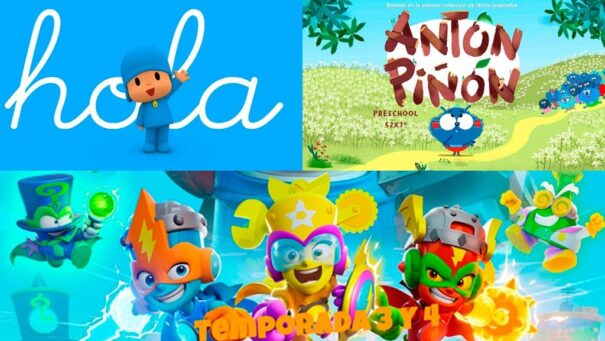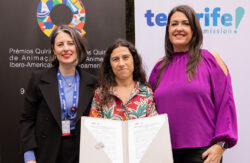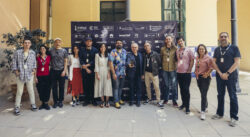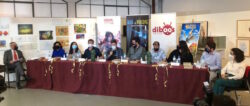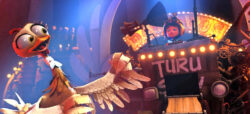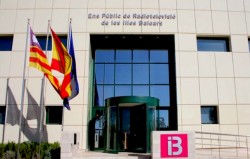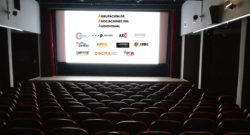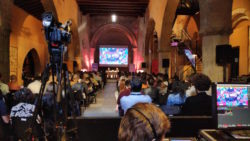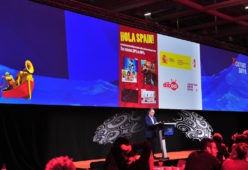Las federaciones y asociaciones del sector acusan a RTVE de obstaculizar el avance de la animación española
Estupor en las federaciones y asociaciones representativas del sector, que denuncian el desinterés de la cadena pública por los contenidos infantiles de animación y su repercusión en el bloqueo del desarrollo de la industria nacional.
A juicio de la industria de animación, a pesar de la declaración de intenciones manifestada por José Pablo López y María Eizaguirre en enero de este año de “convertirse en el motor de la industria audiovisual”, el anuncio hecho ayer por el ente público en el marco del Festival Internacional de Annecy demuestra que, lejos de ser el motor, RTVE se ha convertido en un obstáculo para el sector de la animación española.
Representantes de la cadena pública anunciaron ayer, con más de seis meses de retraso sobre la fecha prevista, la resolución de la convocatoria de series de animación por la que RTVE adquiere nuevas obras nacionales para su canal infantil Clan. El anuncio ha causado mayor impacto, si cabe, al producirse en el marco del MIFA, el mayor mercado mundial de animación, donde los productores españoles, a pesar de ser la segunda delegación con mayor presencia del mundo después de Francia, ha visto de repente bloqueadas sus opciones de cerrar acuerdos de coproducción internacional.
Pocoyó (temporada 6), Superthings (temporadas 3 y 4) y la primera temporada de Antón Piñón son los únicos tres proyectos seleccionados en la convocatoria. A diferencia de ediciones anteriores, RTVE ha apostado por una sola propiedad de nueva creación, con la que el total de series nuevas apoyadas en 2024 suma tres frente a las siete apoyadas en el año 2023. Esta reducción en proyectos de nueva creación se suma a otras dificultades ya denunciadas históricamente por las federaciones de productores, como son las exiguas dotaciones económicas asignadas por proyecto, la lentitud en las resoluciones y negociaciones, y las cláusulas abusivas en los contratos, lo que supone un agravio comparativo para los productores nacionales que salen a competir en desigualdad de condiciones en los mercados internacionales.
Para la asociaciones del sector, RTVE navega en sentido contrario a la tendencia que muestran las televisiones públicas del entorno europeo. Esto ha quedado patente en el panel organizado por la federación europea Animation in Europe, ayer en MIFA, con el título Todos en el mismo barco: ¿cuál es el rol de las televisiones para superar la crisis actual?. En esta mesa redonda, los representantes de France Télévisions y BBC, entre otros, explicaron cómo estos entes públicos están adaptando sus estrategias para apoyar y reforzar a sus respectivas industrias nacionales. También fueron taxativos a la hora de recordar que la obligación de un servicio público es apostar no sólo por las marcas conocidas sino también por los proyectos de nueva creación y proteger a las audiencias infantiles. En cambio, RTVE parece estar dejando de lado a una parte muy importante de la población, los menores de 14 años, no sólo por su volumen (representan 6,3 millones de habitantes, un 13% de la población) sino también porque deja a estas generaciones huérfanas de referentes culturales propios y los empuja a consumir contenido extranjero en otras plataformas.
Por otro lado, a juicio de DIBOOS y PROA es imprescindible que RTVE refuerce su oferta de contenidos infantiles en el canal Clan mediante el aumento del número de proyectos apoyados, equilibrando propiedades de nueva creación y consolidadas, la dotación de los mismos y una mayor agilidad en los procesos internos. Esta colaboración público-privada es clave para que las productoras puedan competir en igualdad de condiciones en la arena internacional y puedan generar riqueza cultural y marca España a través de la retención y explotación de la propiedad intelectual de sus obras.
Did you like this article?
Subscribe to our NEWSLETTER and you won't miss anything.



